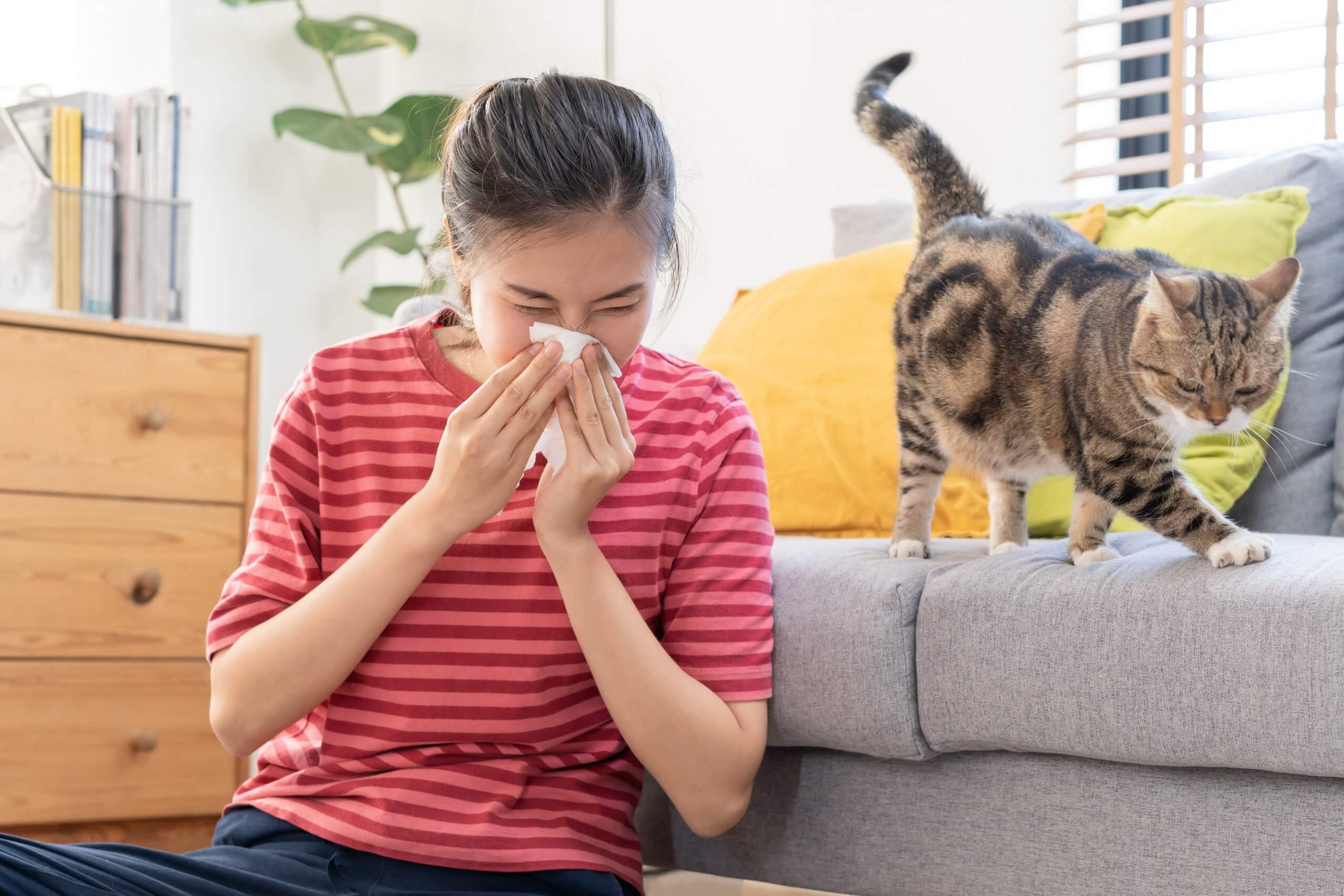If you’ve noticed your spring and summer allergies or symptoms worsening over the past few years, you’re not wrong—or alone. According to Dr. William Reisacher, an otolaryngologist (ear, nose and throat specialist) at Weill Cornell Medicine, you can blame climate change. Basically, the weather stays warmer longer, with pollen levels spiking the entire time.
“We’re seeing our warm seasons expanding,” explained Dr. Reisacher in a WENY News article. “It’s going further into the wintertime on both ends. That extends the amount of time you can be exposed to pollen.”
Fortunately, there are several things you can do to reduce the annoying spring and summer allergy symptoms and potential triggers inside your home.
Leave the Allergens Outside
Minimizing exposure to triggers is key. You can accomplish this by avoiding certain activities that bring allergens and pollen inside your home. Common allergens also include weeds, grasses, smog, molds and dust mites. Pollen is more common in the spring, while the rest traditionally affect us throughout the summer months. Here’s what you can do:
- Don’t overwater indoor plants. This can cause mold growth and attract gnats and pests. (Plus, kill the plants!)
- Avoid hanging clothes outside to dry. While it used to be a common habit, allergens easily stick to moist clothes and linens.
- Try to change clothes and take a shower when you move from outdoors to inside for the night. It may seem daunting and tedious to do this every time, but if you want to avoid allergies, this is one of the best habits.
- Take your shoes off before entering the home. This is a huge source control tip! Getting into the habit of taking shoes off year-round allows fewer pollutants to spread indoors. Simply leave shoes outside or take them off at the door to prevent allergens from entering your space.
- Close windows before you go to bed. Why? Average pollen counts are actually highest between 5 and 10 a.m.
Combat Spring and Summer Allergies With Indoor Air Technology
Your home should be a haven, free from allergens and air pollutants that affect indoor air quality. The thing is, whenever we open a window or go outside and come back in, allergens can enter. This is where IAQ technology and control solutions come into play to save the day. Here’s a brief description of what they are and how they help.
1. Central IAQ Monitor To Track Indoor Air Pollutants
The Haven TZOA Central Air Monitor is the only in-duct air quality monitor on the market. It efficiently tracks home humidity levels, PM2.5, allergens and other pollutants throughout the entire home by monitoring the ‘arteries,’ or ductwork of your home’s HVAC system. The data is sent to both your smartphone and the HVAC contractor who installed it, to constantly track and improve your home’s IAQ.
TZOA Launches All-in-One Smart Home Air Filtration Solution, HAVEN https://t.co/jaJLkuQOtZ #Techcouver pic.twitter.com/4gj0TIKYsj
— Techcouver (@techcouver) August 21, 2019
2. Humidity Control To Stop Allergens From Thriving
Another important tip is to keep relative humidity levels between 40–60%. Every home is different, so there’s no one solution. Some homes might need a whole-home humidifier, others should have a dehumidifier. We break down the systems here. After a thorough assessment of your home, an IAQ or HVAC expert will determine which system your home needs. Humidity control also helps ensure dust mites, mold, germs, allergens and other biological contaminants cannot thrive in your space.
3. Purification To Reduce Spring and Summer Allergies
For the allergens that inevitably make their way into the home, have a solution in place to eliminate them. An active air purification system, like the DustFree Active Air Purifier is a great option. It installs directly into the HVAC system to provide cleaner air in every room of your home.
4. Filtration To Capture Allergens Circulating in Your Space
Also, consider having your local HVAC or IAQ expert assess your home’s HVAC system to determine the highest air filter capacity for your home. That is, the highest MERV-rated air filter the HVAC system can accommodate. It’s the first line of defense against allergens! Upgrade air filters to capture contaminants before they affect your home and health. MERV 13 air filters are our recommendation.
 High-Efficiency Air Filters: Your filter choice matters, not just for better IAQ, but to reduce allergens indoors. Learn more about choosing an air filter to reduce allergy symptoms →
High-Efficiency Air Filters: Your filter choice matters, not just for better IAQ, but to reduce allergens indoors. Learn more about choosing an air filter to reduce allergy symptoms →5. Mechanical Ventilation To Filter Fresh Incoming Air
Bring fresh air into your home without the need to open windows or doors. Mechanical ventilation filters the fresh air coming in while exhausting stale polluted air that builds up in the home.
Fortunately, there’s a solution for large homes, small studios and every space in between. Reach out to us on social media with all of your seasonal allergy IAQ questions!



